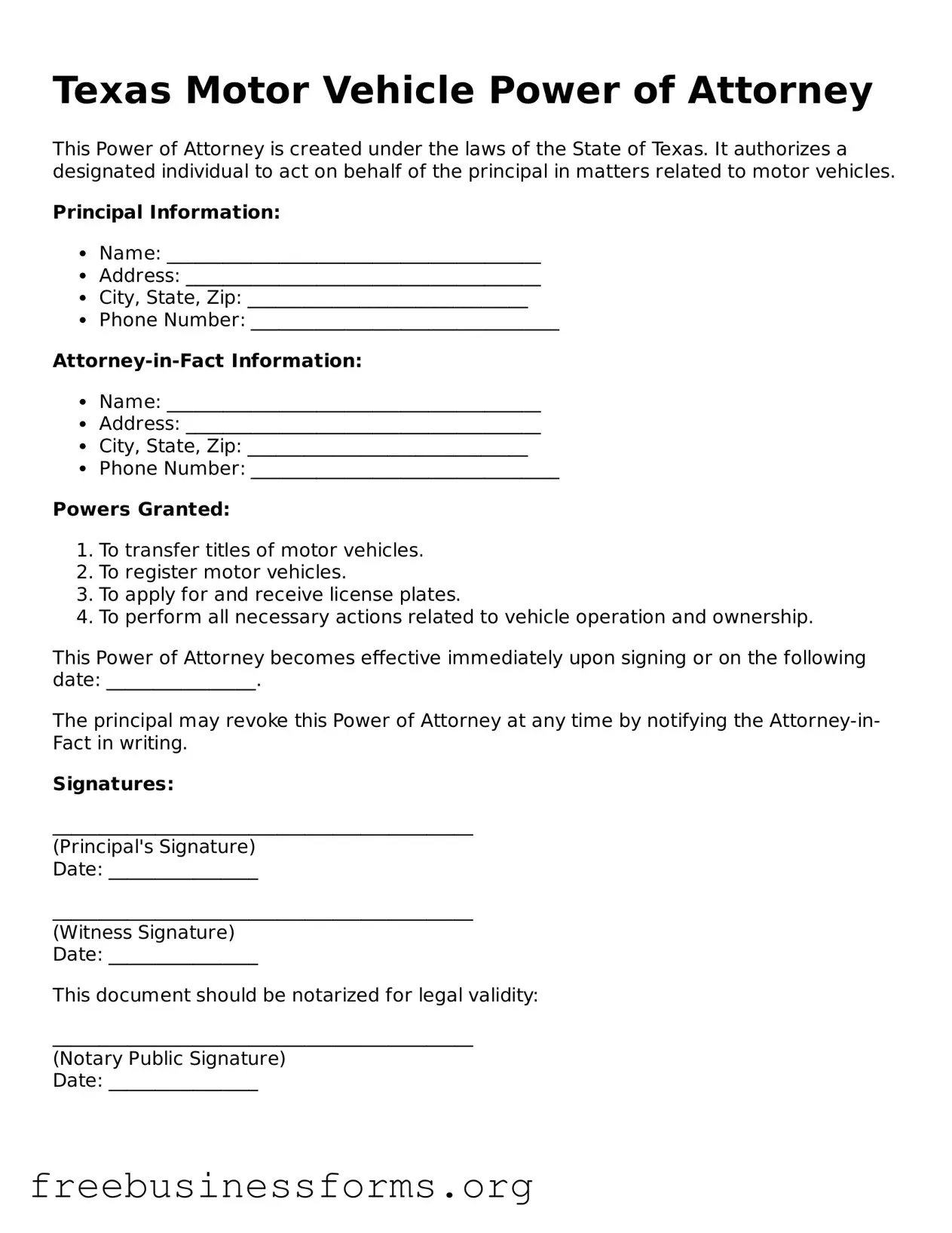Blank Motor Vehicle Power of Attorney Template for Texas
The Texas Motor Vehicle Power of Attorney form is a legal document that allows one person to authorize another to act on their behalf regarding motor vehicle transactions. This form is particularly useful when you need someone to handle vehicle registrations, title transfers, or other related matters while you are unavailable. By granting this power, you ensure that your interests are protected and that necessary actions can be taken efficiently.
Open Form Here

Blank Motor Vehicle Power of Attorney Template for Texas
Open Form Here

Open Form Here
or
↓ PDF File
Quickly complete this form online
Complete your Motor Vehicle Power of Attorney online quickly — edit, save, download.